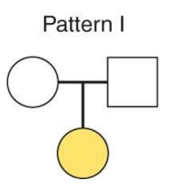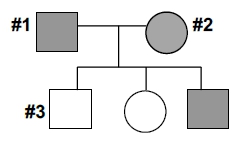Autosomal inheritance refers to the transmission of traits or disorders through genes located on the autosomes, which are the non-sex chromosomes. Understanding this concept is crucial for tracking specific family traits or disorders across generations, allowing for the identification of inheritance patterns. Inheritance patterns can be categorized primarily into two types: autosomal and sex-linked.
In the context of autosomal inheritance, traits or disorders can be inherited in a dominant or recessive manner. Dominant traits require only one copy of the allele to be expressed, while recessive traits necessitate two copies for manifestation. This distinction is essential for predicting the likelihood of traits appearing in offspring based on parental genotypes.
As we delve deeper into the study of autosomal disorders, it will be important to explore specific examples and their implications for genetic counseling and understanding family health history. This foundational knowledge will be built upon in subsequent discussions, including an examination of sex-linked disorders and their unique inheritance patterns.




